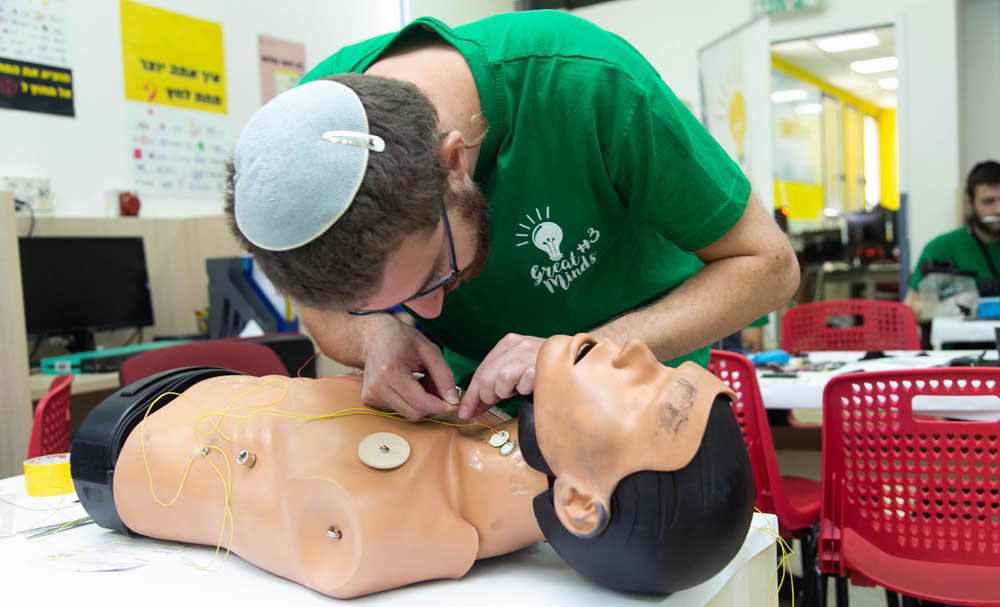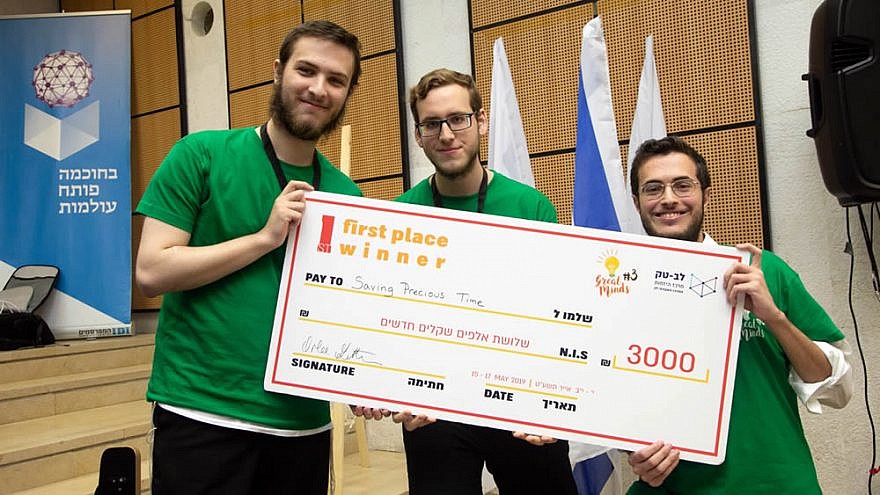More than 80 Jerusalem College of Technology students from Israel and 23 countries gathered at the college’s Machon Lev campus and worked around the clock last Wednesday evening through Friday morning as part of the its third-annual “Great Minds” men’s hackathon.
The winning team, consisting of Brazilians Daniel Vofchuk, David Zimberknopf and Daniel Grunberger, won a 3,000 shekel prize (nearly $850) for their lifesaving solution to a challenge presented by Magen David Adom, designed to eliminate human error when checking crucial inventory on ambulances before they are sent out.
Having to use a paper checklist of more than 100 items, everyday MDA personnel must check inside the ambulance manually, allowing important devices and medications to get left behind when the ambulances dispatch.
Around the world, instances arise when ambulances arrive at places without critical lifesaving equipment like oxygen, a defibrillator batteries or even needles. The winning solution developed an app where sensors installed in the ambulance will be able to identify necessary items and communicate with a tablet on board to notify if something is missing.

“We are so excited to work with these students. They have great questions and are very creative—both the international students and the Israeli students,” said Matanya Frankel, one of the mentors from Magen David Adom who worked with the students throughout the hackathon.
Prizes for second and third place were given to solutions in machine learning to identify online anti-Semitism and take action, while other challenges included a solution involving video analytics and machine learning to identify road accidents in real-time and alert emergency services, an at-home training device for MDA medics and a solution for soldiers with PTSD to provide improved therapy.
“At JCT, we started doing hackathons on campus in order to enable our students to take what they learn in their engineering, business and nursing courses, and then create,” said Orlee Gutman, director of strategic partnerships at JCT. “What we find each year is that what appeals to our students are challenges that save lives and are critical to the well-being of the community, and we couldn’t be prouder of them.
“In addition to the means,” she said, “we also provide them a platform to take the prototypes they create and develop them into products ready for market, so they can see their ideas truly make an impact.”

























